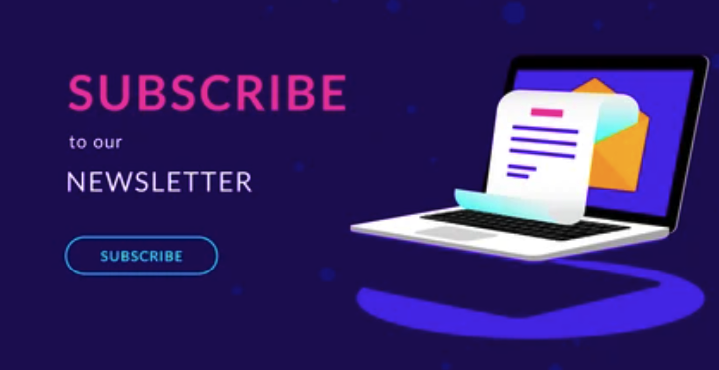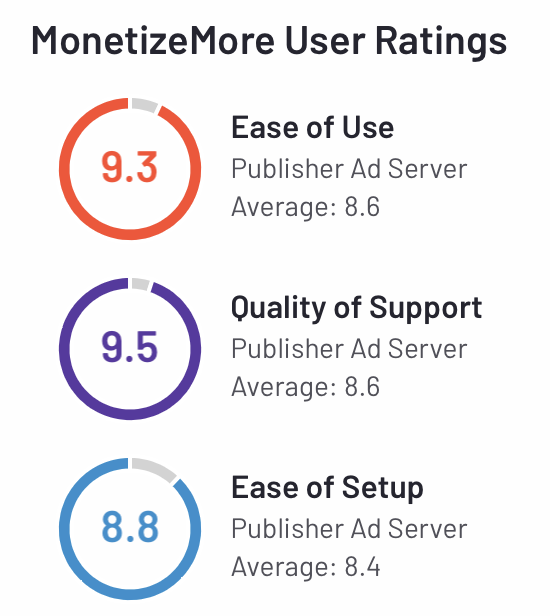Google’s Marketing Live event wasn’t just about showcasing AI Overviews; it was a sneak peek into a future where organic search results may become endangered. Vidhya Srinivasan, VP/GM of Advertising at Google, demonstrated how interactive advertising will be the magician’s cloak, making your hard-earned organic listings vanish into thin air.
Here’s what you missed in the Last Marketing Live Event:
- Interactive Shopping Experiences: Imagine a user searching for a new pair of shoes. Instead of seeing a list of relevant websites, they’re presented with an interactive shopping experience, complete with 3D product views, personalized recommendations, and instant checkout options. This immersive experience is designed to captivate users and keep them within Google’s ecosystem, far away from your organic listings.
- Multimedia Extravaganza: Google is going beyond static ads. They’re embracing video, audio, and other multimedia formats to create eye-catching, attention-grabbing ads that push organic results further down the page. This multimedia onslaught will make it even harder for your content to compete for visibility.
- The Infinite Scroll Trap: As users engage with these interactive ads and multimedia content, they’ll be drawn into an endless scroll of “more from Google.” Organic listings will be relegated to the depths of this scrolling abyss, virtually out of sight and out of mind.
The message is clear: Google is prioritizing interactive advertising over organic search. For publishers, this means that even if you manage to rank well in organic search, your content may be hidden behind a wall of interactive ads and multimedia experiences. Your visibility will be diminished, your traffic will dwindle, and your revenue will suffer.
The Click Heist: Stealing Traffic from Publishers
For publishers, the implications of Google’s AI Overviews are nothing short of alarming. Traditionally, organic search results have been a vital source of traffic for websites and blogs. When users searched for a topic, they were presented with a list of relevant links, which they clicked on to take them directly to the publisher’s site. This model allowed publishers to attract readers, build their audience, and generate revenue through advertising or other means.
However, AI Overviews are fundamentally changing this dynamic. Now, when users search for information, Google often presents them with an AI-generated summary at the top of the results page. This summary may answer the user’s query directly, reducing the likelihood that they will click through to any of the organic results below. In essence, Google is intercepting user clicks that would normally go to publishers’ websites, effectively stealing traffic and potential revenue.
This loss of traffic is a serious blow for publishers, as it directly translates to lost ad impressions, fewer page views, and, ultimately, less revenue. For smaller publishers and independent creators, this could be devastating, as they rely heavily on organic search traffic to sustain their businesses.
The problem is compounded by the fact that Google’s AI Overviews are often based on content scraped from publishers’ websites. In other words, Google is using publishers’ own content to generate summaries that then compete with those publishers’ organic listings. This practice not only deprives publishers of traffic but also raises questions about fair use and intellectual property.
As publishers, we cannot afford to ignore this click heist. We must adapt our strategies to the changing SERPs, explore alternative traffic sources, and diversify our revenue streams.
Ads in Overviews: The Double Whammy for Organic Search
Google’s latest maneuver is a double blow to publishers who are already grappling with the impact of AI Overviews. In addition to siphoning off organic traffic, Google is now set to inject ads directly into the AI Overviews section itself. This means that even if users do scroll past the overview, they’ll encounter ads before they reach the organic results.
Imagine this: a user searches for a topic, and an AI Overview appears at the top of the page. Before the user can even see your carefully crafted article, they’re bombarded with ads that are not only contextually relevant to their search but also tailored to the information within the overview. This creates a significant barrier between users and your content, further reducing the chances of them clicking through to your website.
This move is particularly insidious because it leverages the very content that Google scraped from publishers to create the AI Overviews in the first place. In essence, Google is using your own words to sell ads that compete with your organic listings. This not only deprives you of traffic but also adds insult to injury by using your content to generate revenue for Google at your expense.
The consequences for publishers are dire. Organic results are already being pushed further down the page, making them less visible and accessible to users. The addition of ads within AI Overviews will exacerbate this problem, potentially relegating organic listings to the digital equivalent of the bargain bin. This could lead to a significant drop in traffic, engagement, and revenue for publishers, especially those who rely heavily on organic search.
AI-Driven Ad Revenue Inflation: A Recipe for Disaster
Not only are organic results being pushed further down the page, making them less visible and accessible to users, but the addition of ads within AI Overviews creates a perfect storm for a major drop in ad revenue.
Here’s why:

- Reduced Click-Through Rates (CTR): With ads now positioned above organic results, users are more likely to click on the ads, diverting traffic away from publishers’ sites and lowering their overall CTR.
- Lower Ad Impressions: Fewer visitors to your site directly translates to fewer ad impressions, which in turn means less revenue for publishers.
- Increased Competition: As Google opens up ad inventory within the AI Overviews, the increased competition for ad placements could drive up bidding prices, making it more expensive for publishers to participate in Google’s ad auctions.
- Decreased Value of Organic Traffic: Even if users do click through to your site, the value of that traffic is diminished. Users arriving from AI Overviews may be less engaged and less likely to convert, as they’ve already received a summary of the information they were seeking.
As Google’s AI becomes more sophisticated at optimizing ad revenue, it creates a vicious cycle. Advertisers are incentivized to bid higher to secure premium placements, driving up costs for everyone. This can price out smaller publishers and independent creators, leaving the field dominated by those with the deepest pockets.
What Can Publishers Do?
In the face of Google’s relentless push towards ad-dominated search results, publishers need to adopt a proactive approach to survival. Diversification is key, both in terms of traffic sources and revenue streams. Here are some actionable steps to consider:
Expand Your Traffic Horizons

- Newsletters: Cultivate a loyal readership through email newsletters. This direct channel gives you more control over your audience and helps you stay connected even when Google throws curveballs.
- YouTube: Leverage the power of video to engage your audience and build a following. YouTube can be a valuable traffic source and offers its own monetization opportunities.
- Reddit: Engage with niche communities on Reddit to share your content and drive traffic to your site. Be sure to follow the platform’s rules and etiquette to avoid being perceived as spam.
- TikTok: If your content lends itself to short, engaging videos, TikTok is now a popular search engine and can be a powerful tool for reaching a younger audience and generating buzz.
- Social Media: Maintain an active presence on relevant social media platforms like LinkedIn and Instagram to connect with your audience, share your content, and drive traffic back to your site.
Explore Alternative Monetization Models

- MonetizeMore: Consider using ad optimization platforms like MonetizeMore, which can help you maximize your ad revenue and navigate the complexities of programmatic advertising. Unlike Google AdSense, MonetizeMore focuses on high-quality publishers and offers tailored solutions to help you scale your ad revenue. Get started with MonetizeMore here.
- Subscriptions and Memberships: Dive into the world of recurring revenue by offering exclusive content that your audience can’t get anywhere else. This could include in-depth articles, early access to stories, behind-the-scenes glimpses, or interactive Q&A sessions. Consider tiered memberships with varying levels of access and perks to cater to different budgets and interests.
- Affiliate Marketing: Turn your content into a sales engine by partnering with brands whose products or services align with your niche. Recommend their offerings to your audience and earn a commission on each sale made through your unique affiliate links. This can be a passive income stream that requires minimal effort but can yield significant returns over time.
- Sponsored Content: Collaborate with brands to create content that seamlessly integrates their message while still providing value to your readers. This could involve reviews, tutorials, or even storytelling that subtly features the brand’s product or service. Be upfront and transparent about the sponsorship to maintain trust with your audience.
- Consulting and Services: You’ve honed your expertise in your niche, so why not monetize it? Offer consulting services to businesses or individuals seeking your insights. Conduct workshops or webinars to share your knowledge with a wider audience. This not only generates income but also establishes you as a thought leader in your field.
By diversifying your traffic sources and revenue streams, you can reduce your reliance on Google and build a more sustainable business model for the long term.
Conclusion
As Google increasingly relies on its own AI-generated summaries to answer user queries, the company gains even more control over the information users see. This raises the specter of a future where Google’s AI-powered overviews, surrounded by Google’s own ads, dominate the search results page, leaving little room for organic content from other sources.
This monopolistic power play poses a significant threat to the open web and the free exchange of information. It’s essential for publishers, advertisers, and users alike to understand the implications of Google’s actions and advocate for a more level playing field on the Internet.
source https://www.monetizemore.com/blog/ai-overviews-ads/



0 Comments